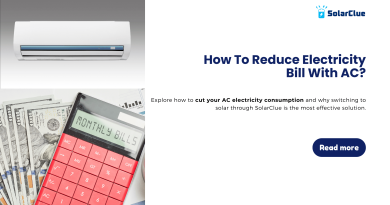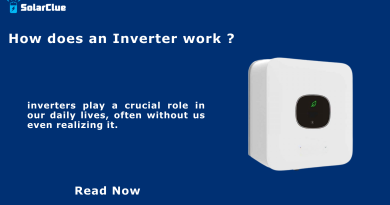Advantages Of On Grid Solar System 3
Table of Contents As the world continues to grapple with the reality of dwindling fossil fuels and the harmful effects of greenhouse gases, renewable energy sources, particularly solar power, are emerging as practical and sustainable alternatives. A solar power system can either be on-grid or off-grid, but this article aims to highlight and discuss the advantages of an on-grid solar system. An on-grid solar system, also known as a grid-tied or grid-connected solar system, is a solar power generation system interconnected with the utility grid. It allows homeowners or businesses to use solar energy while still being connected to their electrical grid. This implies that if your solar system does not produce enough electricity, the grid can supply the deficit, and when your system overproduces, the surplus can be exported back to the grid. One of the significant advantages of an on-grid solar system is the financial benefits it offers. The installation cost of an on-grid solar system is often less than an off-grid system because it does not require a backup battery. Moreover, the system can also work as a revenue source as any excess electricity produced can be sold back to the grid, depending on governmental policies in your region. This beneficial scheme is known as net metering, encouraging more people to invest in on-grid solar systems, thus reducing their electricity costs. An on-grid solar system can provide an uninterrupted power supply even on cloudy or rainy days when sunlight is minimal. Since it is connected to the utility grid, power can easily be sourced from the grid when the solar system isn’t producing enough electricity. This greatly reduces the chance of power blackouts, providing peace of mind to the users especially those who use energy for critical business operations. In addition to financial benefits, the on-grid solar system also boasts significant environmental advantages. By utilizing the abundant, clean, and renewable power from the sun, the system significantly reduces dependence on fossil fuels. This in return reduces the amount of greenhouse gases emitted into the atmosphere thus, helping combat climate change and promoting a clean and green environment. Compared to the traditional off-grid solar system, the on-grid system is relatively low in maintenance. Since it does not require any batteries to store energy produced during the day, users don’t have to worry about replacing or maintaining these batteries. Furthermore, solar panels typically have a long lifespan, and once installed, only require minimal and infrequent maintenance. This factor makes the on-grid system a hassle-free energy option. Although an on-grid solar system is connected to the utility grid, it provides users with a degree of energy independence. The system gives homeowners the flexibility to generate their own power and depend less on the grid. This independence can provide great resilience, especially during power outages, natural disasters, or utility rate hikes, making the users less vulnerable to such occurrences. Deciding to go with an on-grid solar system also means adopting a simplified system design. The components involved are fewer, making the installation process more straightforward. The absence of a battery storage system reduces complexity and allows for quicker installations. This can be beneficial for homeowners who don’t want to deal with overly complicated systems or infrastructure changes. In conclusion, the advantages of an on-grid solar system extend far beyond the typical benefits of solar energy. Apart from contributing towards a more sustainable and clean environment, these systems can also be financially attractive due to lower installation costs and potential credit from net metering. Furthermore, they offer uninterrupted power, energy independence, low maintenance, and a simplified system design, making them an efficient and practical choice for many people. Therefore, an on-grid solar system serves as a responsible and beneficial investment that aligns with the global shift towards cleaner and renewable energy sources.Introduction
Meaning of On-Grid Solar System
Financial Benefits
Uninterrupted Power Supply
Environmentally Friendly
Low Maintenance
Energy Independence
Simplified System Design
Conclusion



